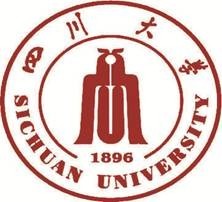Janus Polyurethane Adhesive Patch with Antibacterial Properties for Wound Healing
尽管组织粘合剂发展迅速,但其过敏、稳定性差、双面粘合性能不统一等缺陷限制了其在医疗领域的应用。在这项工作中,Janus 聚氨酯贴片是通过在乳液干燥过程中调节贴片顶部和底部之间官能团分布的差异而自发制备的。因此,底部表面的粘附力较差,而顶部表面很容易粘附到金属、聚合物、玻璃和组织上。两表面对猪皮的粘合强度相差5倍以上。聚氨酯贴片表面的季铵盐和亲水成分能够快速去除和吸收组织表面的水分,从而实现湿粘附。动物实验证明,这种多功能Janus聚氨酯贴片可以促进皮肤伤口闭合和感染伤口的愈合。这种构建 Janus 聚氨酯贴片的简便有效的策略为功能性组织粘合剂的开发提供了一种有前途的方法。https://doi.org/10.1021/acsami.4c00924
Despite the rapid development of tissue adhesives, flaws including allergies, poor stability, and indiscriminate double-sided adhesive properties limit their application in the medical field. In this work, Janus polyurethane patches were spontaneously prepared by adjusting the difference in the functional group distribution between the top and bottom sides of the patch during emulsion drying. Consequently, poor adhesion was exhibited on the bottom surface, while the top surface can easily adhere to metals, polymers, glasses, and tissues. The difference in adhesive strength to pork skin between the two surfaces is more than 5 times. The quaternary ammonium salt and hydrophilic components on the surface of the polyurethane patch enable the rapid removal and absorption of water from the tissue surface to achieve wet adhesion. Animal experiments have demonstrated that this multifunctional Janus polyurethane patch can promote skin wound closure and healing of infected wounds. This facile and effective strategy to construct Janus polyurethane patch provides a promising method for the development of functional tissue-adhesives.
